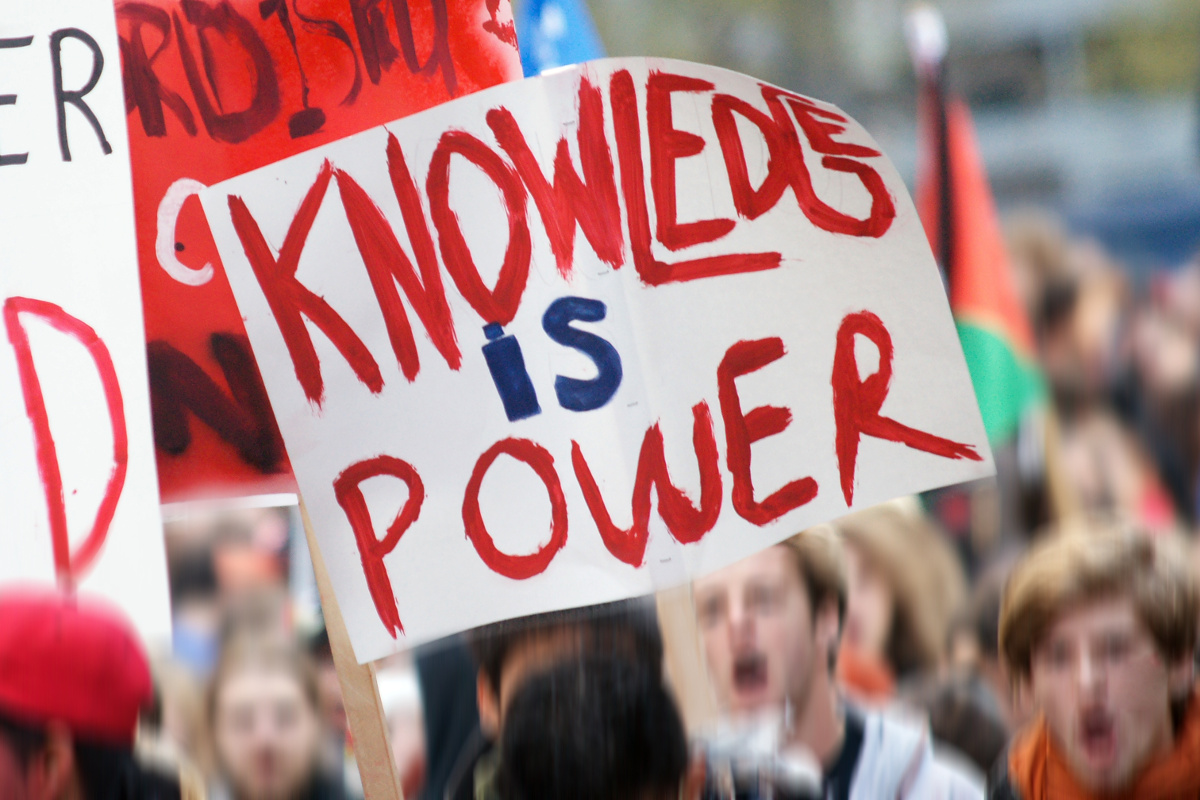Science / Tech
A Risk Not Worth Taking: An Open Letter to My Colleagues in The Academy
We need a strategy that insulates us from hate, no matter what empirical research uncovers about the world.

Dear Colleagues:
What an interesting world we inhabit in 2017. On one hand, there has never been a better time to be alive. Violence has been declining for some time, vaccines ward off previously intractable diseases, and basic human rights have continued to creep into parts of the world where they were previously absent. Yet, at the same time, we find ourselves increasingly polarized in certain respects. What we do as scholars invariably becomes injected into the heart of many of these key societal debates. Basic empirical questions—such as “is the world getting warmer, and if so, are we humans causing it to happen?” can ignite strong feelings and heated rancor. You don’t have to study climate to find yourself swept up in the fray, either. Almost no corner of science is fully immune from stoking a controversy. It is because of this reality, that I write to you.
Never in the history of our species have we understood so much about the world we inhabit. I mean that we truly understand it. We have untethered ourselves from myth and fable, and comprehend the world in a way that our ancestors were unable to fathom. We haven’t solved every mystery, of course, but that only means that what resides ahead of us is a treasure trove of discovery and insight. We should be excited and we should be fearless in our quest to understand everything we can about our world. Yet, some have reservations. These concerns arise from how other, less enlightened, members of our species might use knowledge for reprehensible purposes. They rightly worry about the plight of less fortunate members of our world, individuals from disadvantaged backgrounds, members of imperiled minority groups, and those who have faced decade after decade of loathsome treatment. Their humanity compels them to care, and I share their all of their concerns.
Yet, I would humbly suggest that you are, inadvertently, rigging the deck in favor of the very ill-motived people you intend to guard against. Recently some colleagues and I, for instance, have been openly debating a rather fraught subject; the source of achievement gaps in modern society. Our partners in the debate have publicly and privately expressed concern about the irresponsibility of making certain arguments about the sources of an achievement gap. Our colleagues worry that members of the public who harbor animus toward minority individuals will seize upon any foothold that they can to justify their inhumanity. The problem is, our colleagues don’t realize just how correct they are. Those bent on discrimination will use any bit of knowledge to their advantage; knowledge that is real or imagined. This is, in fact, the crux of the issue; the hate and bias that you worry about will not be ameliorated by painting a certain picture of the world. I wish it were that easy. Hate runs deeper than that.

We need a strategy that insulates us from hate, no matter what empirical research uncovers about the world. Part of this strategy involves a system of laws that disavows systemic bias against individuals because of some trait that they embody. Do we really need to know the underlying causes of sexual orientation to make a case for the moral worth of all humans? No, we do not. Realizing this frees us to understand what the causes of sexual orientation are, promulgate them openly in the way that the ethical cannon of science demands of us, and still denounce the mistreatment of individuals because of their orientation. I implore you not to cede any ground to those misguided souls in society. We do not need specific versions of empirical realities to exist in order to realize that we’re all capable of suffering, that the properties of our central nervous system equip us to feel sorrow and anguish. We already have every reason we ever needed to advocate fairness and decency. My hero Charles Darwin, by all accounts a good and decent man, stole from us the idea that we are products of special creation, made in the image of a loving god. We were clumsily assembled piecemeal by an emotionless process of selection. And yet, our worth—the worth of all human beings—is not diminished one iota because of it.
We should be united in the idea that nothing in science will overturn the imperative to treat all individuals as sentient creatures capable of feeling great happiness, and also great suffering. We do not need the natural world to exist in a certain way in order to ensure the moral worth of all creatures who inhabit it. To suggest otherwise is so very dangerous. I urge you not to take that risk.
Warmest regards and best wishes,
Brian Boutwell






